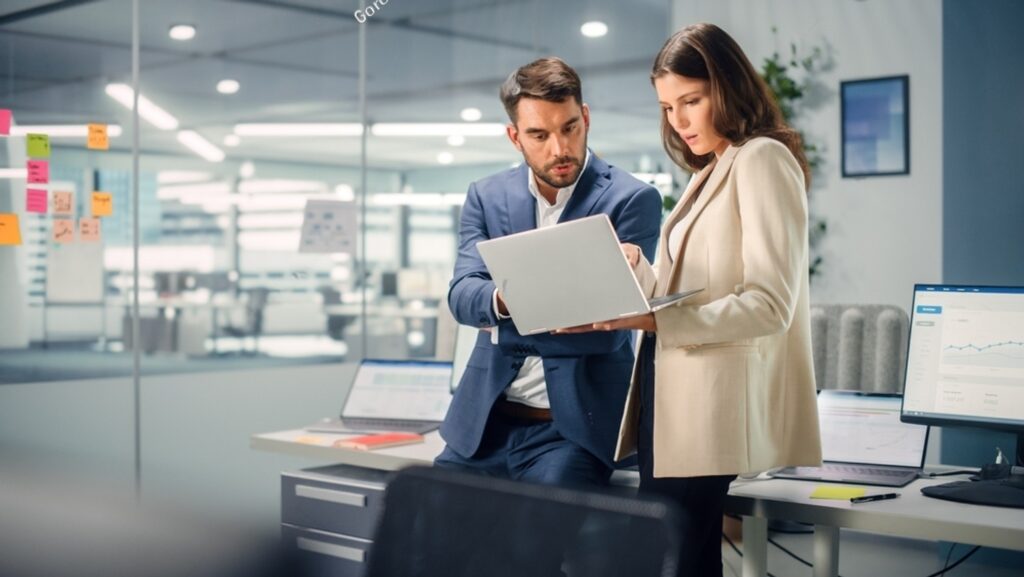
In today’s fast-paced and dynamic business environment, effective project management is the cornerstone of success for organizations across industries. At the heart of every successful project is a skilled project manager who can navigate complex challenges, coordinate resources, and deliver results. While academic qualifications and certifications are essential, it is the real-world experience that truly sets project managers apart. In this blog post, we delve into the importance of project manager work experience, exploring the key skills developed through hands-on involvement in diverse projects and the immense benefits it brings to both professionals and the organizations they serve.
What is a Project Manager?
A project manager is a versatile professional responsible for planning, executing, and closing projects within an organization. Whether it’s a construction project, software development, marketing campaign, or any other venture, project managers play a vital role in ensuring the project’s success. They act as the driving force, keeping teams focused, monitoring progress, and proactively addressing challenges.
In addition to managing tasks and timelines, project managers serve as the bridge between stakeholders, clients, and team members, effectively communicating project objectives and ensuring everyone is on the same page. With their multifaceted responsibilities, project managers wear many hats, and their expertise directly impacts an organization’s ability to achieve its strategic goals.
Why Work Experience Matters for Project Managers
While academic qualifications provide a solid foundation, it is the practical experience that empowers project managers to thrive in real-world scenarios. Work experience equips them with valuable insights, hones their skills, and instills a level of confidence that can only be gained through hands-on involvement in various projects.
In the high-stakes world of project management, experienced professionals possess a deep understanding of industry best practices, potential pitfalls, and proven strategies for success. They are adept at adapting to unforeseen challenges, minimizing risks, and making informed decisions under pressure.
Research indicates that project managers with substantial work experience are more likely to deliver projects on time, within budget, and to the satisfaction of stakeholders. Experienced project managers also tend to exhibit a higher level of emotional intelligence, enabling them to build strong, collaborative teams and navigate complex interpersonal dynamics.
Key Skills Developed Through Work Experience
Project management work experience fosters the development of an extensive skill set that sets apart seasoned professionals. Here are some of the key skills that project managers cultivate through hands-on experience:
- Communication Skills: A crucial aspect of successful project management is clear and effective communication. Experienced project managers excel at articulating ideas, conveying expectations, and actively listening to stakeholders and team members. This skill ensures that everyone is aligned with project goals and contributes to a cohesive work environment.
- Time Management: Meeting deadlines is fundamental to project success. Experienced project managers have honed their time management skills to optimize resources, prioritize tasks, and keep projects on track. Their ability to navigate time constraints ensures that projects are completed efficiently and meet the desired timelines.
- Problem-Solving: Projects rarely go exactly as planned, and challenges are bound to arise. Experienced project managers are well-versed in problem-solving, addressing issues head-on, and finding creative solutions to overcome obstacles. Their adaptability and resourcefulness prove invaluable in mitigating risks and ensuring project progress.
Gaining Work Experience as a Project Manager
Aspiring project managers often wonder how to gain the necessary work experience to kickstart their careers. There are several paths to consider:
- Starting as an Assistant or Coordinator: Many project managers begin their journey as assistants or coordinators in project teams. While these roles may involve less decision-making authority, they provide invaluable exposure to project management processes and best practices. Aspiring project managers can learn from seasoned professionals, contribute to various project phases, and gradually take on more responsibilities.
- Internships and Volunteer Opportunities: Seek out internships or volunteer opportunities in organizations that run projects. Non-profit organizations, startups, and community initiatives often welcome enthusiastic individuals willing to support project initiatives. These experiences not only provide hands-on learning but also showcase your commitment to making a positive impact through project management.
- Managing Small-Scale Projects: Taking the initiative to manage small-scale projects independently can be a significant stepping stone. Even personal projects or academic assignments can be adapted to showcase project management skills. Creating a portfolio of successful projects demonstrates your ability to handle responsibilities and deliver results.
- Certifications and Professional Development Programs: While experience is essential, certifications can enhance your credentials and show dedication to continuous learning. Certifications such as Project Management Professional (PMP), Certified Associate in Project Management (CAPM), or Agile Certified Practitioner (ACP) are widely recognized in the industry and can open doors to opportunities.
Showcasing Work Experience on a Resume
Once you’ve gained relevant work experience as a project manager, it’s crucial to present it effectively on your resume. Here are some tips for showcasing your work experience:
- Quantify Achievements: Use quantifiable metrics to highlight your contributions in previous projects. For example, mention how you completed a project ahead of schedule, improved efficiency by a certain percentage, or saved costs through effective resource allocation.
- Focus on Results: Emphasize the outcomes of your projects rather than just listing your responsibilities. Employers are interested in what you achieved and how your work positively impacted the organization.
- Tailor Your Resume: Customize your resume to match the specific requirements of the job you’re applying for. Highlight relevant experiences and skills that align with the position.
- Use Action Verbs: Start bullet points with strong action verbs to showcase your proactive approach to project management. Words like “led,” “implemented,” “optimized,” and “achieved” demonstrate your active involvement.
Leveraging Work Experience in Job Interviews
When you get called for a project manager job interview, it’s essential to demonstrate how your work experience makes you the ideal candidate for the position. Here are some strategies to leverage your work experience during interviews:
- Highlight Successful Projects: Share details of projects you managed that achieved exceptional results. Discuss how you overcame challenges, collaborated with teams, and ensured project success.
- Addressing Behavioral Questions: Be prepared to answer behavioral questions that assess your project management skills. These may include questions about handling conflicts, managing tight deadlines, and dealing with budget constraints. Draw on your experiences to provide thoughtful responses.
- Demonstrate Adaptability: Showcase your ability to adapt to changing project requirements and unexpected hurdles. Employers value project managers who can stay composed and adjust strategies when necessary.
- Communicate Leadership Skills: Emphasize how you’ve effectively led teams, motivated individuals, and fostered a positive work environment. Strong leadership is a key attribute that employers seek in project managers.
Career Progression and Opportunities
As you accumulate project management work experience, you open the door to exciting career progression and diverse opportunities. The benefits of work experience for project managers include:
- Career Growth: With a track record of successful projects, you become eligible for more senior project management roles. These positions offer greater responsibilities, challenges, and rewards.
- Increased Marketability: Experienced project managers are highly sought after in the job market. Your work experience sets you apart from candidates with minimal practical exposure, making you an attractive prospect to employers.
- Salary Advancement: Work experience is often directly linked to higher earning potential. As you progress in your career, you can negotiate better compensation packages based on your expertise and achievements.
- Diverse Industries: Project management skills are transferable across various industries. As an experienced project manager, you have the flexibility to work in sectors like IT, construction, healthcare, finance, and more.
Industry Insights and Success Stories
To inspire aspiring project managers, let’s explore some real-life success stories of individuals who climbed the ladder of success through their work experience:
- Sarah’s Transformation: Sarah started as a project coordinator at a tech startup. Through dedication and hard work, she rose to the position of a project manager. Her ability to manage complex IT projects caught the attention of a multinational corporation, where she now leads a team of project managers for global initiatives.
- Mark’s Non-Profit Impact: Mark volunteered with a non-profit organization to manage community development projects. His commitment and successful outcomes attracted the attention of a renowned NGO, and he now oversees multi-million-dollar projects with a focus on making a positive social impact.
- Lisa’s Career Shift: Lisa transitioned from a sales role to project management by managing small marketing campaigns. Her experience and skill development in project management landed her a role as a project manager at a leading advertising agency.
Takeaway
Work experience plays a crucial role in the journey of a project manager. The skills developed through hands-on involvement, the ability to handle complex projects, and the tangible results achieved are invaluable assets that shape a project manager’s career trajectory. Whether you’re an aspiring project manager seeking opportunities or a seasoned professional looking to progress further, work experience will remain a pivotal factor in your success. Continuously seek opportunities to grow, learn, and apply your skills to excel in the dynamic world of project management. Embrace your journey, and let your work experience propel you to new heights in your profession.



